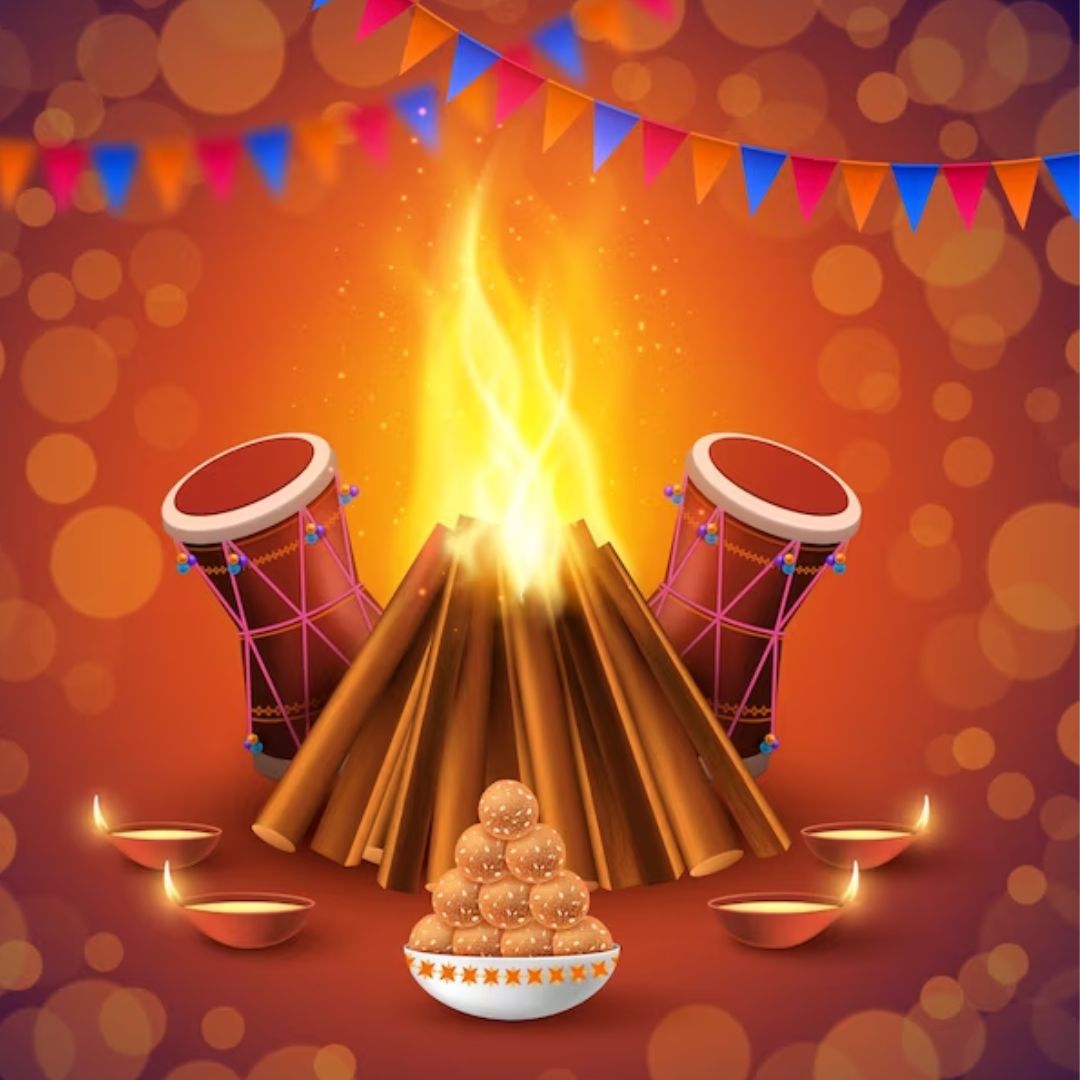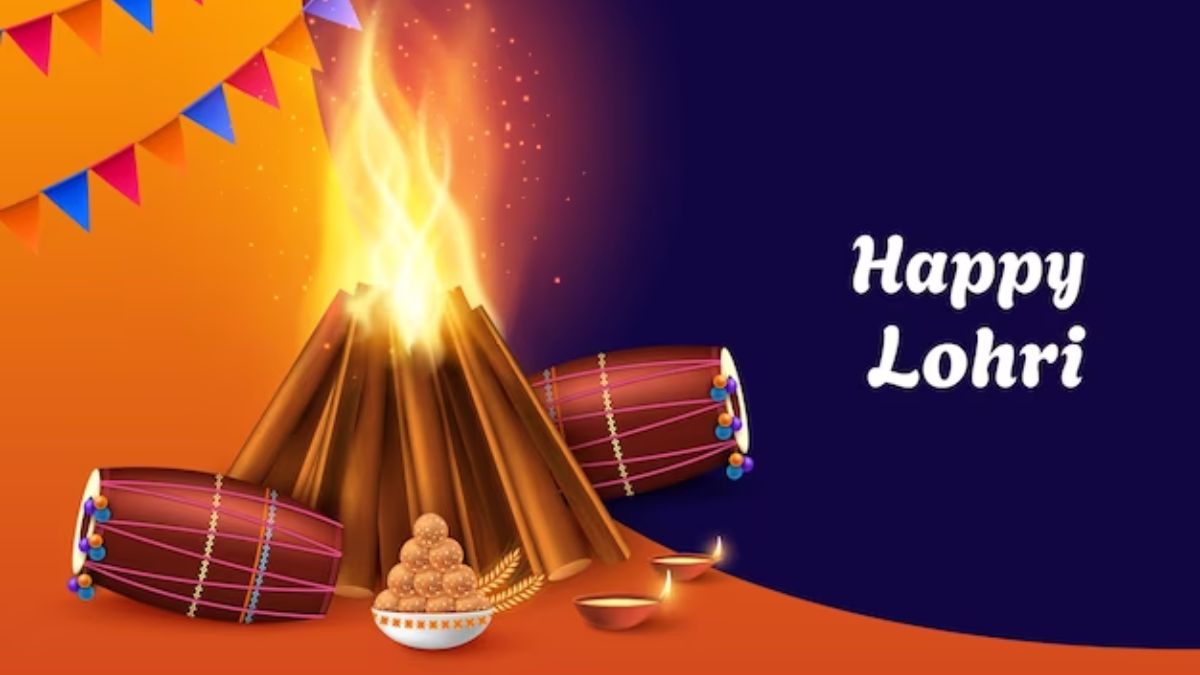- By Kashish Rai
- Fri, 12 Jan 2024 11:42 AM (IST)
- Source:JND
Lohri 2024: The significant harvest festival Lohri is celebrated a day before Makar Sankranti. In the northern parts of India, particularly in Punjab, Delhi, Haryana, and certain areas of Himachal Pradesh, people celebrate the festival of Lohri with tremendous enthusiasm. Harvest season in the nation begins with Lohri, which signifies the conclusion of the Winter Solstice. The festival of Lohri is also known by various significant names like Lohadi and Lal Loi etc. This year, Lohri will be celebrated on the 14th of January respectively. Let us check out some interesting facts about the festival further.
Lohri 2024: Interesting Facts About The Harvest Festival
1. Different Names Of Lohri - The origin of Lohri was Tilorhi, which translates to "til" (sesame seeds) and "rorhi" (jaggery). Later with time, Tilorhi came to be known as Lohri. In many parts of Punjab, Lohri is still referred to as Lohi and Loi.

The popular harvest festival Lohri is celebrated with astounding enthusiasm and anticipation throughout Punjab, as well as in portions of Haryana, Rajasthan, Himachal Pradesh, Jammu, and Delhi. (Image Source: Freepik)
2. Festival’s Relationship With Bandit Dulla Bhatti - According to folklore, the origin of the Lohri festival has been linked to Bandit Bulla Bhatti. It is believed that Dulla Bhatti was a highway robber who resided in Punjab during Akbar's rule. Bhatti used to rob the wealthy and aid the underprivileged. Even though everyone knew Bhatti was a thief, he was nevertheless well-liked. However, in addition to robbing the wealthy, he also saved girls who were being kidnapped and forced into the Middle Eastern slave trade. Dulla Bhatti even organised their marriages. As a result of these deeds, he rose to fame among Punjabi people as their version of Robin Hood. Because of this, the lyrics of every other Lohri song are essentially an expression of appreciation for Dulla Bhatti.
3. Begins Financial New Year - The celebration holds significance as Punjabi farmers view the day after Lohri as the start of the financial year, a belief that is shared by Sikhs as well.
4. Significant For New Bride And Newborn - The festivities leading up to Lohri, one of the biggest celebrations in India, begin several days in advance. However, huge preparations and festivities are required when it's a new family member's first Lohri. Families make every effort to make the first Lohri of a new bride or baby in the family unforgettable.
5. Marks The End Of Winter - Lohri signifies the end of winter and the beginning of a longer day on the final day of Paush and the start of Magha. Lohri night, which is also the longest night of the year, is paradoxically also the shortest day of the year and is therefore thought to be the coldest night of winter. To greet the sun in the northern hemisphere, people celebrate Lohri. But historically, it has been connected to the harvesting of rabi crops.
6. Significance Of Lohri Bonfire - This celebration is also known as the festival of fire in Punjab and Haryana. Thus, on the day of Lohri, individuals walk around the fire while burning wood. Walking around the sacred fire is said to bring good luck. Everybody sits around the fire during this circumambulation, sings songs, offers grains of corn, peanuts, and other food to the flames, gives each other hugs, and wishes each other a happy Lohri. Puffed rice and popcorn usually get tossed into the fire when people assemble around the bonfire in the evening and say "aadar aye dilather jaye," which translates to "may respect come and poverty vanish."
ALSO READ: Seven Vows Of Hindu Wedding: Significance Of The 7 Pheras Taken By Hindu Groom And Bride
7. Other Popular Legends Behind Lohri Festival - The origin of the name Lohri is uncertain. In rural Punjab, Lohri is also pronounced as Lohi. The first explanation is that it originates from Loi, the wife of Sant Kabir. There are many who think that the word Lohri originates from loh, a thick iron plate that is used to create chapattis. Additionally, according to a tale, Holika and Lohri were sisters. Lohri survived the Holi fire, but Holika perished. Another tale is that since the festival involves the consumption of til (sesame seeds) and rorhi (jaggery), it's probable that the terms til and rorhi combined to become tilorhi, which was later abbreviated to Lohri.

